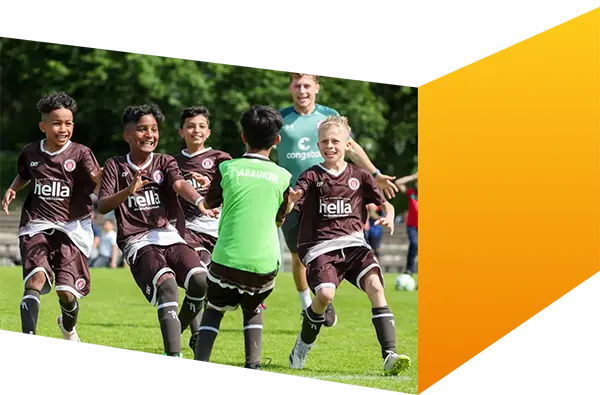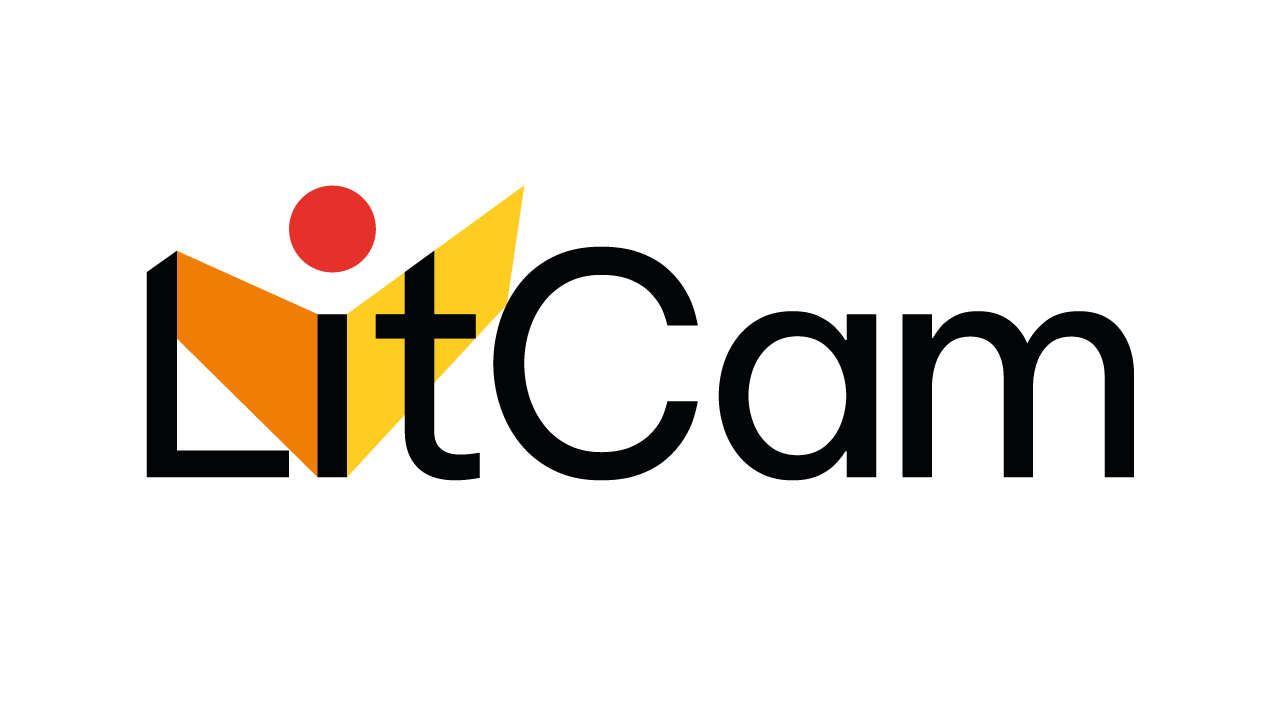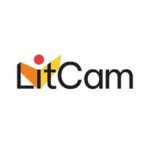We promote Education. Language. Team spirit. Community. Culture.
What we do
We use the power of soccer to ensure that every child has the opportunity to receive a good education.
With our projects, we create motivating and inspiring approaches to language, culture and movement.
Voices of change
Our projects are made possible by numerous supporters from sport, business and society as well as highly committed local project teams.
They play a key role in supporting us on our path to greater educational equality.
Ridle Baku, professional footballer and nationwide ambassador for "Fußball trifft Kultur"
Manuel Neuer, professional soccer player and sponsor of the DFL Foundation
Participants in "Fußball trifft Kultur"
Franziska Fey, Chairwoman of the Board of the DFL Foundation
Tim Gailus, journalist and TV presenter
Ulmengrundschule 3c - Lese-Kicker
Aletta Fließbach, elementary school teacher at Wasserquell
Nia Künzer, former player at 1. FFC Frankfurt and program sponsor at the Frankfurt site
Christian Rode, project teacher of "Löwenstark – Fußball trifft Kultur"
Figures for the 2023/2024 school year
locations
5.000+
Sponsored children
90 %
of our participants would recommend our projects to others
200
Project locations
86 %
of participants state that they have improved at school

⚽📚 Stadionlesung mit Felix Herzenbruch im Merck-Stadion am Böllenfalltor!
Der frühere Fußballprofi @felix_herze begeisterte die Kinder von „Fußball trifft Kultur“ mit einer spannenden Lesung seines Buches im Stadion vom @svdarmstadt1898.
Er sprach über seinen Weg als Profi, über Teamgeist – und zeigte, dass Geschichten genau wie Fußball verbinden können. Danke für diesen besonderen Moment! 💙
#fußballtrifftkultur #felixherzenbruch #darmstadt98 #stadionlesung #chancenschaffen #svdarmstadt98 #bildungdurchsport #ftkdarmstadt #bildung

⚽📚 Stadionlesung mit Felix Herzenbruch im Merck-Stadion am Böllenfalltor!
Der frühere Fußballprofi @felix_herze begeisterte die Kinder von „Fußball trifft Kultur“ mit einer spannenden Lesung seines Buches im Stadion vom @svdarmstadt1898.
Er sprach über seinen Weg als Profi, über Teamgeist – und zeigte, dass Geschichten genau wie Fußball verbinden können. Danke für diesen besonderen Moment! 💙
#fußballtrifftkultur #felixherzenbruch #darmstadt98 #stadionlesung #chancenschaffen #svdarmstadt98 #bildungdurchsport #ftkdarmstadt #bildung
...
🎨⚽ Kunst trifft Fußball ⚽🎨
Ein ganz besonderer Tag für unsere Kids vom "Fußball trifft Kultur" in Berlin: Auf Initiative von @laureus.sport.for.good durften sie Künstler Noah Becker in der @galeriedeschler treffen – und mit ihm an einem kreativen Malworkshop teilnehmen. 🖌️🖼️
Mit viel Farbe, Fantasie und Begeisterung entstanden beeindruckende Kunstwerke.
Danke, lieber @noahalotoftings, für dein Engagement – und ein großes Dankeschön an @laureus.sport.for.good, die diesen inspirierenden Tag möglich gemacht haben! 💛
📸 Fotos: @freshphylix
#FußballTrifftKultur #FTKBerlin #NoahBecker #Laureus #CharityArt #DeschlerGalerie #GemeinsamStark #BildungDurchSport #bildung #chancenschaffen #unionberlin #sportforgood

🎨⚽ Kunst trifft Fußball ⚽🎨
Ein ganz besonderer Tag für unsere Kids vom "Fußball trifft Kultur" in Berlin: Auf Initiative von @laureus.sport.for.good durften sie Künstler Noah Becker in der @galeriedeschler treffen – und mit ihm an einem kreativen Malworkshop teilnehmen. 🖌️🖼️
Mit viel Farbe, Fantasie und Begeisterung entstanden beeindruckende Kunstwerke.
Danke, lieber @noahalotoftings, für dein Engagement – und ein großes Dankeschön an @laureus.sport.for.good, die diesen inspirierenden Tag möglich gemacht haben! 💛
📸 Fotos: @freshphylix
#FußballTrifftKultur #FTKBerlin #NoahBecker #Laureus #CharityArt #DeschlerGalerie #GemeinsamStark #BildungDurchSport #bildung #chancenschaffen #unionberlin #sportforgood
...
Ein Wochenende voller Emotionen, Teamgeist und Tore! ⚽🎉
Beim großen „Fußball trifft Kultur“-Abschlussturnier 2025 trafen sich über 600 Kinder aus 23 Städten auf der traditionsreichen Glückauf-Kampfbahn in Gelsenkirchen, um gemeinsam zu spielen und zu feiern. 🏆💙
Die sommerlichen Temperaturen konnten der Stimmung nichts anhaben: Dank @gelsenwasser blieben alle mit kühlem Wasser, guter Laune und jeder Menge Energie bestens versorgt. 💧☀️
Ein großes Dankeschön an die @dflstiftung, den @rvr.ruhr und den @s04, für die Unterstützung dieses besonderen Events!
Wir gratulieren allen Top-Scorer*innen, Fair-Play-Teams, All-Stars – und natürlich ganz besonders den diesjährigen Siegerteams! ⭐🙌
🏅 U10: Schalker Regenbogenschule aus Gelsenkirchen – Partnerclub: @s04
🏅 U12: IGS Bretzenheim aus Mainz – Partnerclub: @1fsvmainz05
🏅 U14: Herbert-Grillo-Gesamtschule aus Duisburg – Partnerclub: @msvduisburg
#FussballTrifftKultur #ChancenSchaffen #SchalkeHilft #Fussball #Bildung #Kultur #Schalke04 #S04 #BundesligaWirkt #Ruhrgames

Ein Wochenende voller Emotionen, Teamgeist und Tore! ⚽🎉
Beim großen „Fußball trifft Kultur“-Abschlussturnier 2025 trafen sich über 600 Kinder aus 23 Städten auf der traditionsreichen Glückauf-Kampfbahn in Gelsenkirchen, um gemeinsam zu spielen und zu feiern. 🏆💙
Die sommerlichen Temperaturen konnten der Stimmung nichts anhaben: Dank @gelsenwasser blieben alle mit kühlem Wasser, guter Laune und jeder Menge Energie bestens versorgt. 💧☀️
Ein großes Dankeschön an die @dflstiftung, den @rvr.ruhr und den @s04, für die Unterstützung dieses besonderen Events!
Wir gratulieren allen Top-Scorer*innen, Fair-Play-Teams, All-Stars – und natürlich ganz besonders den diesjährigen Siegerteams! ⭐🙌
🏅 U10: Schalker Regenbogenschule aus Gelsenkirchen – Partnerclub: @s04
🏅 U12: IGS Bretzenheim aus Mainz – Partnerclub: @1fsvmainz05
🏅 U14: Herbert-Grillo-Gesamtschule aus Duisburg – Partnerclub: @msvduisburg
#FussballTrifftKultur #ChancenSchaffen #SchalkeHilft #Fussball #Bildung #Kultur #Schalke04 #S04 #BundesligaWirkt #Ruhrgames
...
Morgen ist es endlich soweit – das große „Fußball trifft Kultur“-Abschlussturnier steht in den Startlöchern! ⚽🙌
Wir freuen uns riesig auf ein unvergessliches Fußballfest. 💙😍
#FussballTrifftKultur #ChancenSchaffen #SchalkeHilft #Fussball #Bildung #Kultur #Schalke04 #S04 #BundesligaWirkt #dflstiftung #ruhrgames

Morgen ist es endlich soweit – das große „Fußball trifft Kultur“-Abschlussturnier steht in den Startlöchern! ⚽🙌
Wir freuen uns riesig auf ein unvergessliches Fußballfest. 💙😍
#FussballTrifftKultur #ChancenSchaffen #SchalkeHilft #Fussball #Bildung #Kultur #Schalke04 #S04 #BundesligaWirkt #dflstiftung #ruhrgames
...
Nur noch 3 Tage, dann heißt es: Anstoß für das große Fußball trifft Kultur-Abschlussturnier 2025! 🏆⚽
Die Spannung steigt – über 600 Kinder aus 23 Städten reisen nach Gelsenkirchen, um in der Glückauf-Kampfbahn um die Pokale zu spielen. 💥
Mit dabei: Kinder aus ganz Deutschland, tolle Tore, faire Spiele und unvergessliche Glücksmomente.
Wir danken dem FC Schalke 04, der DFL Stiftung und dem Regionalverband Ruhr für die Unterstützung! 🙏
#FussballTrifftKultur #ChancenSchaffen #SchalkeHilft #Fussball #Bildung #Kultur #Schalke04 #S04 #BundesligaWirkt #ruhrgames

Nur noch 3 Tage, dann heißt es: Anstoß für das große Fußball trifft Kultur-Abschlussturnier 2025! 🏆⚽
Die Spannung steigt – über 600 Kinder aus 23 Städten reisen nach Gelsenkirchen, um in der Glückauf-Kampfbahn um die Pokale zu spielen. 💥
Mit dabei: Kinder aus ganz Deutschland, tolle Tore, faire Spiele und unvergessliche Glücksmomente.
Wir danken dem FC Schalke 04, der DFL Stiftung und dem Regionalverband Ruhr für die Unterstützung! 🙏
#FussballTrifftKultur #ChancenSchaffen #SchalkeHilft #Fussball #Bildung #Kultur #Schalke04 #S04 #BundesligaWirkt #ruhrgames
...
✨ Was für ein tolles Wochenende!
Unsere Direktorin Karin Plötz war beim diesjährigen Angel-Cup von @freshfieldsgermany zu Gast – und durfte eine großzügige Spende entgegennehmen. 🙌
Die Spendensumme wird zwischen LitCam und ZAN e.V. aufgeteilt – einer Organisation, die sich für geflüchtete Frauen aus Afghanistan engagiert und ihnen Bildung, Empowerment und neue Perspektiven bietet. 👏
Unser Anteil fließt direkt in unsere „Fußball trifft Kultur“-Standort in Frankfurt und hilft dort, benachteiligte Kinder in ihrer schulischen und persönlichen Entwicklung zu stärken. ⚽📚
Ein riesiges Dankeschön an Freshfields für ihr langjähriges Vertrauen und ihr starkes soziales Engagement! 🤝😍
#angelcup #fussball #bildung #fussballtrifftkultur

✨ Was für ein tolles Wochenende!
Unsere Direktorin Karin Plötz war beim diesjährigen Angel-Cup von @freshfieldsgermany zu Gast – und durfte eine großzügige Spende entgegennehmen. 🙌
Die Spendensumme wird zwischen LitCam und ZAN e.V. aufgeteilt – einer Organisation, die sich für geflüchtete Frauen aus Afghanistan engagiert und ihnen Bildung, Empowerment und neue Perspektiven bietet. 👏
Unser Anteil fließt direkt in unsere „Fußball trifft Kultur“-Standort in Frankfurt und hilft dort, benachteiligte Kinder in ihrer schulischen und persönlichen Entwicklung zu stärken. ⚽📚
Ein riesiges Dankeschön an Freshfields für ihr langjähriges Vertrauen und ihr starkes soziales Engagement! 🤝😍
#angelcup #fussball #bildung #fussballtrifftkultur
...
🔜 Noch 7 Tage bis zum großen Finale von Fußball trifft Kultur! ⚽🎉
Über 600 Kinder aus 23 Städten machen sich bereit für das 15. FtK-Abschlussturnier in der historischen Glückauf-Kampfbahn in Gelsenkirchen! 💙
Gemeinsam mit dem @s04 und dank der starken Unterstützung der @dflstiftung und des @rvr.ruhr wird das Turnier zum Höhepunkt eines besonderen Bildungsjahres. 🙌
📚⚽ Sprache, Bewegung, Kultur – das ist FtK. Und nächste Woche feiern wir all das mit einem bunten Fußballfest!
#FussballTrifftKultur #ChancenSchaffen #SchalkeHilft #Fussball #Bildung #Kultur #Schalke04 #S04 #BundesligaWirkt #ruhrgames

🔜 Noch 7 Tage bis zum großen Finale von Fußball trifft Kultur! ⚽🎉
Über 600 Kinder aus 23 Städten machen sich bereit für das 15. FtK-Abschlussturnier in der historischen Glückauf-Kampfbahn in Gelsenkirchen! 💙
Gemeinsam mit dem @s04 und dank der starken Unterstützung der @dflstiftung und des @rvr.ruhr wird das Turnier zum Höhepunkt eines besonderen Bildungsjahres. 🙌
📚⚽ Sprache, Bewegung, Kultur – das ist FtK. Und nächste Woche feiern wir all das mit einem bunten Fußballfest!
#FussballTrifftKultur #ChancenSchaffen #SchalkeHilft #Fussball #Bildung #Kultur #Schalke04 #S04 #BundesligaWirkt #ruhrgames
...
Stadionlesung bei Fortuna Düsseldorf! 📚⚽
Heute wurde die Merkur Spiel-Arena zum ganz besonderen Lernort:
Oliver Fink, langjähriger Profi von Fortuna Düsseldorf, las den FtK-Kindern aus dem Buch „Fußball für alle“ von Knut Krüger vor – eine tolle Aktion im Rahmen unseres Programms „Fußball trifft Kultur“. 🌟📖
Die Kinder waren begeistert, die Atmosphäre war einzigartig. 🙌✨
Vielen Dank an @oliver7fink, @f95 und alle, die diesen besonderen Moment möglich gemacht haben! ❤️⚽
#FußballTrifftKultur #FortunaDüsseldorf #Stadionlesung #OliverFink #FußballFürAlle #FtK #fortunadüsseldorf #Stadionlesung #OliverFink #FußballFürAlle #FußballTrifftKultur #BildungDurchSport

Stadionlesung bei Fortuna Düsseldorf! 📚⚽
Heute wurde die Merkur Spiel-Arena zum ganz besonderen Lernort:
Oliver Fink, langjähriger Profi von Fortuna Düsseldorf, las den FtK-Kindern aus dem Buch „Fußball für alle“ von Knut Krüger vor – eine tolle Aktion im Rahmen unseres Programms „Fußball trifft Kultur“. 🌟📖
Die Kinder waren begeistert, die Atmosphäre war einzigartig. 🙌✨
Vielen Dank an @oliver7fink, @f95 und alle, die diesen besonderen Moment möglich gemacht haben! ❤️⚽
#FußballTrifftKultur #FortunaDüsseldorf #Stadionlesung #OliverFink #FußballFürAlle #FtK #fortunadüsseldorf #Stadionlesung #OliverFink #FußballFürAlle #FußballTrifftKultur #BildungDurchSport
...

